Britain OKs Vaccine As Global Covid Death Toll Nears 1.5 Million
Britain on Wednesday became the first western country to approve a Covid-19 vaccine for general use, while Italy and Japan promised free inoculations for all even as the global death toll ticked towards 1.5 million.
A mere 12 months after the pandemic began in China, the UK's independent medicines regulator gave its green light to the BioNTech-Pfizer drug in double-quick time but insisted safety had come first.
"Everybody can be confident that no corners whatsoever have been cut," said Medicines and Healthcare products Regulatory Agency (MHRA) chief executive June Raine. "The public deserve nothing less."
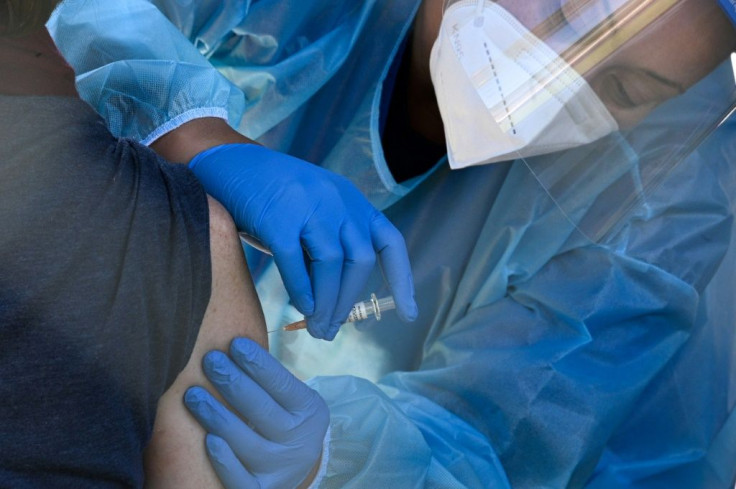
Prime Minister Boris Johnson said the move heralded a vaccination programme "that will ultimately allow us to reclaim our lives and get the economy moving again", and the government said some 800,000 doses would be administered as soon as next week.
Johnson will hope for a political boost from the announcement, after he was criticised for his initial lax response to the global outbreak. He has endured months of questions about the provision of protective equipment and protecting care home residents, as well as testing capacity.
With over 59,000 deaths from 1.6 million cases, Britain's outbreak remains the deadliest in Europe.
The US and EU had on Tuesday fleshed out plans to administer Covid-19 vaccines as soon as they gain approval.
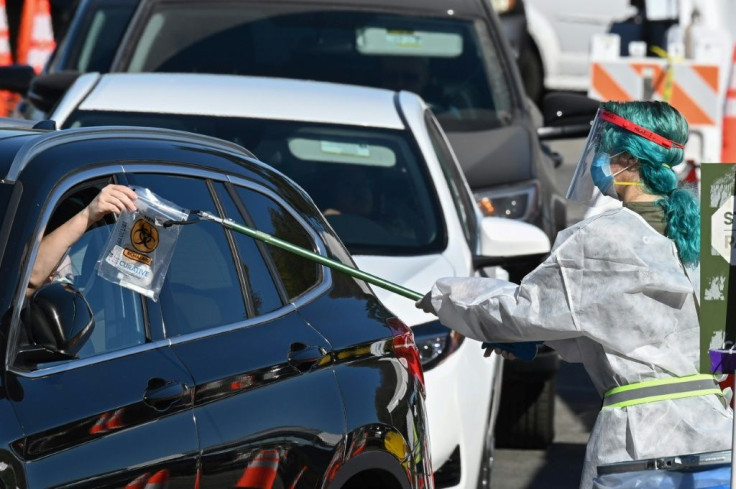
With the European Medicines Agency (EMA) expected to rule on the Pfizer-BioNTech vaccine by December 29, "we can finally see the light at the end of the tunnel" with plans for nationwide free inoculations, Italian Health Minister Roberto Speranza said Wednesday.
Japan's parliament passed a bill to the same effect.
As in Britain, Italy plans for medical staff and workers and residents in elderly care homes to be among the first vaccinated, followed by other old people, essential workers and chronically ill people.
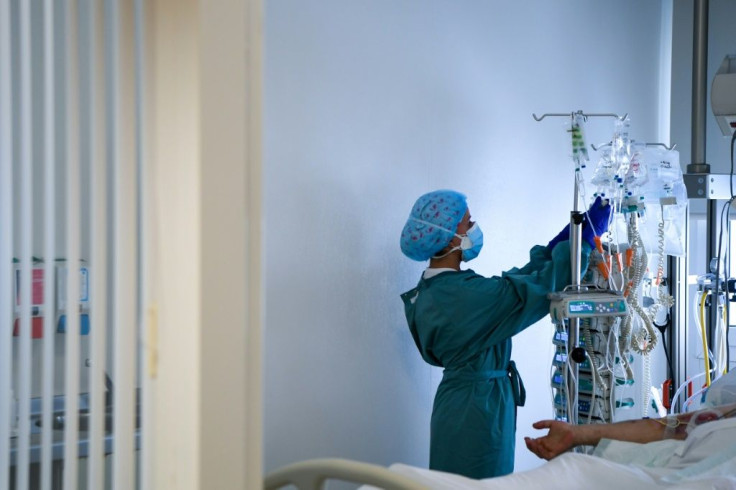
But "do not mistake the first ray of sunlight for an escape from danger," Speranza said. "If we let down our guard now, the third wave is just around the corner."
With tens of millions in England still under restrictions after the lifting of a nationwide lockdown, Johnson also urged the public to remain cautious.
Close to 1.5 million people globally had died from the coronavirus by 1430 GMT Wednesday, according to an AFP count based on official sources, while 63.9 million have been infected.
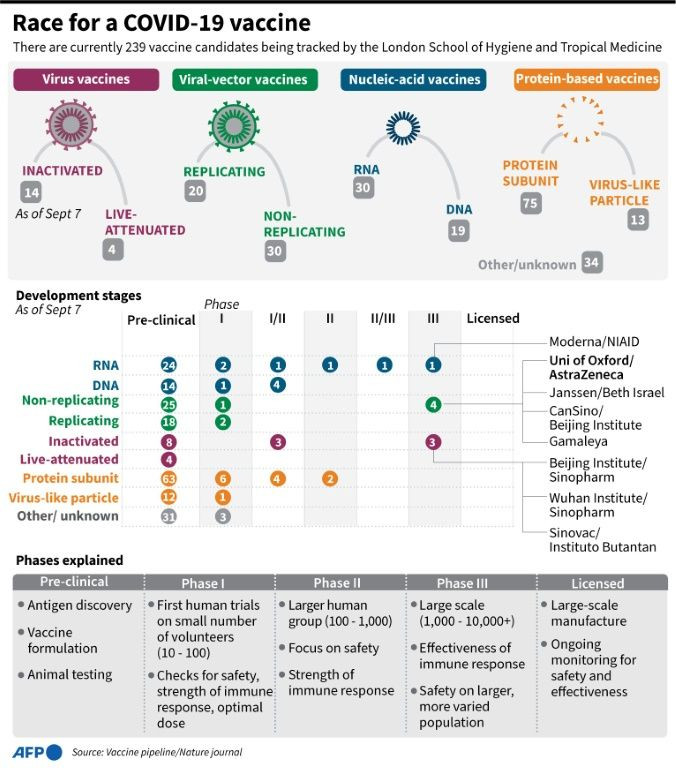
Pfizer chief executive Albert Bourla said the UK certification was a "historic moment in the fight against Covid-19".
"This authorisation is a goal we have been working toward since we first declared that science will win," he said.
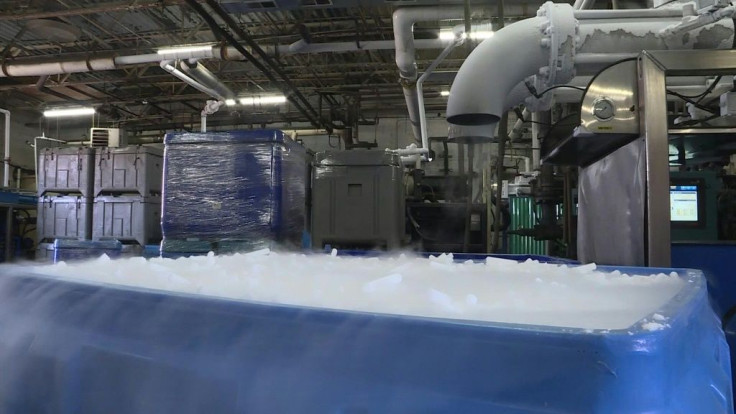
US giant Pfizer and German newcomer BioNTech added that they expected further regulatory decisions from other countries "in the coming days and weeks".
Other vaccines expected to come on stream soon include ones from Moderna and AstraZeneca/Oxford University, which has strong backing from the UK government.
Scientists also acclaimed the UK news but cautioned that logistical challenges remained. The Pfizer-BioNTech jab has to be stored at -70 degrees Celsius (-94 degrees Fahrenheit), requiring specialist freezers.
It requires two doses 21 days apart, and the MHRA said immunity kicks in a week after the second dose.
Meanwhile many poorer countries are pinning their hopes on the AstraZeneca/Oxford candidate, which can be kept in regular refrigerators and is being offered at cost price.
But it is undergoing further data analysis after questions were raised over the effectiveness of its dosage regime.
With effectiveness around 95 percent, both the Pfizer-BioNTech and Moderna vaccines are based on new mRNA technology, which hacks into human cells to effectively turn them into vaccine-making factories.
Russia was the first country to announce a successful vaccine candidate, dubbed Sputnik V.
President Vladimir Putin on Wednesday told health officials to begin large-scale inoculations next week, starting with teachers and medics, adding that Russia has produced close to 2 million doses.
The drug has not undergone Western clinical trials.
As mass vaccination inches closer to reality, Interpol warned Wednesday that organised crime groups could attempt to steal supplies of vaccines or sell their own fake ones.
Beyond the hoped-for jabs, researchers at the University of Pennsylvania and biotech firm Regeneron are working on a nasal spray that will stop infection from the virus, initially testing the gene therapy on animals.
The World Health Organization said that for now people should wear masks in poorly ventilated indoor areas if other people are near, including in schools and workplaces.
And another UN body, the International Labour Organization (ILO), warned of "massive downward pressure on wages in the near future" due to the economic impact of the pandemic.
"The wages of women and low-paid workers have been disproportionately affected," the ILO added.
In more positive economic news, Australia reported Wednesday that it had returned to growth, expanding 3.3 percent in July-September after the pandemic plunged it into its first recession in 30 years.
© Copyright AFP 2024. All rights reserved.





















